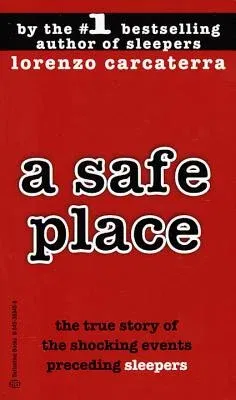On his deathbed, Mario Carcaterra asked his son, Lorenzo, a simple
question: "Do you love me?" Lorenzo's answer was equally simple,
although heartbreaking. His answer was "No." A Safe Place is an
extraordinary document, truly distinguished nonfiction that details a
relationship startling for its violence and passion, devastating in its
psychological ramifications, yet important and even uplifting for its
ability to grab hold of and confront the truth. At one time, of course,
Lorenzo Carcaterra did love his father. Yes, the older man was rough,
often shockingly violent - beating Lorenzo's mother and Lorenzo
himself - but such violence was a way of life in Hell's Kitchen, New
York, in the fifties and sixties. And the violence was often tempered
with warmth and affection. Lorenzo and his dad sat side by side at the
fights at Madison Square Garden, they savored Italian ices on street
corners in the summer they took the subway to the ballpark to root for
their beloved Yankees. And then, when Lorenzo was fourteen years old, he
learned that his father had murdered his first wife, had smothered her
with a pillow in a jealous rage when she threatened to leave him. This
news shattered Lorenzo. He couldn't look his father in the eye, couldn't
respect the man he had respected above all others, couldn't feel love
for the man he adored. Worse, he became terrified for his own future:
Did he, Lorenzo, have that same murderous rage within him? The question
began to haunt him, to dominate his life. And he began to hate his
father, a hate that festered and grew as his father became more and more
abusive to Lorenzo, to Lorenzo's mother, to the world around him. A Safe
Place is a book of many dimensions. Itis an evocative portrait of a time
gone by, a time of Italian immigrants standing in fire-hydrant showers
in the sweltering New York streets, a time of both great innocence and
great fear. The book is also, in many ways, an intimate biography of two
people, Lorenzo's parents: hi

